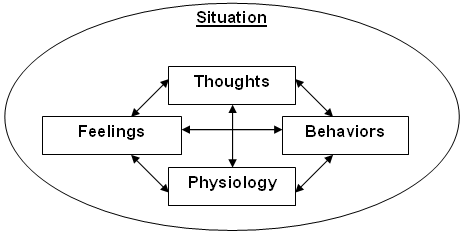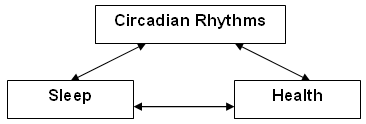My theoretical orientation lies closest to the cognitive-behavioral domain. Thus, my approach to case conceptualization involves gathering information regarding a pattern of thoughts, feelings, behaviors and physiology in order to identify the relationships between possible causal mechanisms and presenting problems.

Sleep, in my view, is a type of situation. It is the emergent state when thoughts and feelings about sleep, sleep-related behaviors, and physiology come together. I believe that many aspects of sleep are related to many aspects of health, and both of these are informed by the circadian system, which itself can be modified by sleep and health variables.

I believe that successful clinical intervention depends on developing a strong working relationship with the client and utilizing evidence-based approaches to assessment and treatment.
I consider one of my greatest strengths to be my ability to establish good working relationships with clients, so that I can create a context within which information can be gathered by both parties and an intervention can be successful.
Prior to any other intervention, I rely on a thorough clinical interview to gather relevant information about the presenting problem, its history and course, and other factors that may have influenced it. I also gather information about acculturation, health, medical, and family history to create a more complete picture of a client or patient. I administer well-validated assessment measures at the outset and throughout therapy to gather additional data and document progress. If no validated measure exists, I use my judgment to decide what measurements to use, taking into considerations possible psychometric problems. I use these data along with clinical impressions to provide a more complete picture of a client and track progress.
I believe that case conceptualization following and extending the cognitive-behavioral framework will identify the presenting complaints in terms of behaviors, cognitions, feelings and physiology. Problematic behaviors may be reinforcing or may be reinforced by the presenting problem. Negative cognitions may also be contributing to the current condition. Discussions of schemas, core beliefs, conditional statements, automatic thoughts, and other components of cognitive therapy can specifically put presenting problems in a theoretical context. Additionally, psychological symptoms may have some underlying physiological components that may be directly causing the current condition and need to be addressed before any other intervention can be effective.
Treatment usually focuses on changing behaviors initially, since this often produces some immediate results and reinforces therapy. Afterwards, a more thorough approach, including elements of cognitive therapy, as described by Beck and colleagues, and later updated by a number of researchers and theorists, could be applied. I try to carefully monitor the course of treatment, evaluating goals and current progress, as indicated by measurements and clinical judgment. If treatment needs to change, I try to redirect sessions by finding alternative behaviors and tools to better reach goals. To this end, the client is the focus of treatment. They need to be guided, but solutions should be found by the client, so that they can have ownership of them, rather than being passive to "advice."
While I believe that the cognitive-behavioral framework is very useful in the conceptualization and treatment of psychological symptoms, I also believe that understanding diverse theoretical frameworks and intervention techniques can foster a better understanding of a client and a more successful outcome. During my internship, I look forward to deepening and broadening my theoretical framework while improving my skills in delivering empirically-supported treatments.